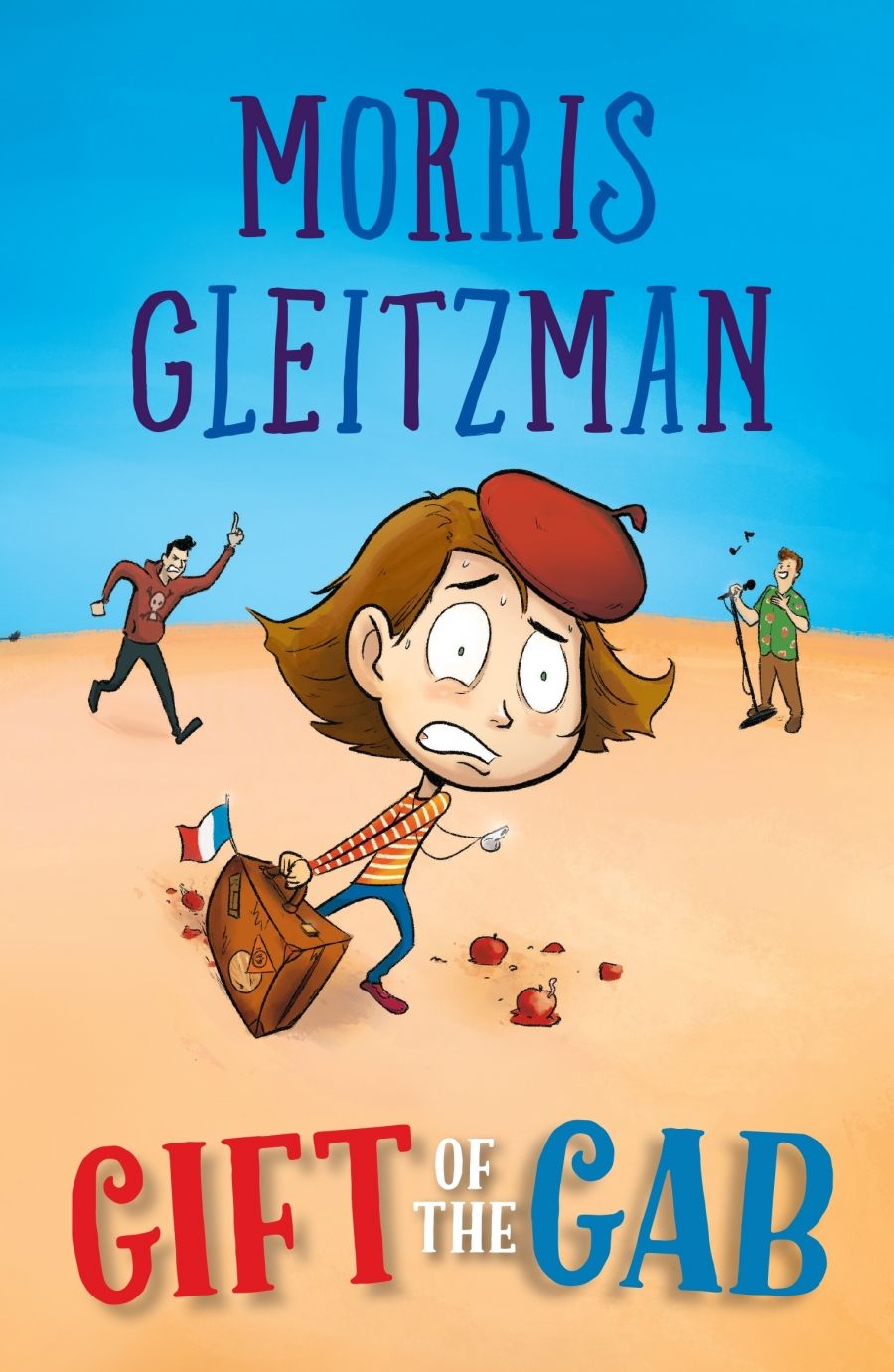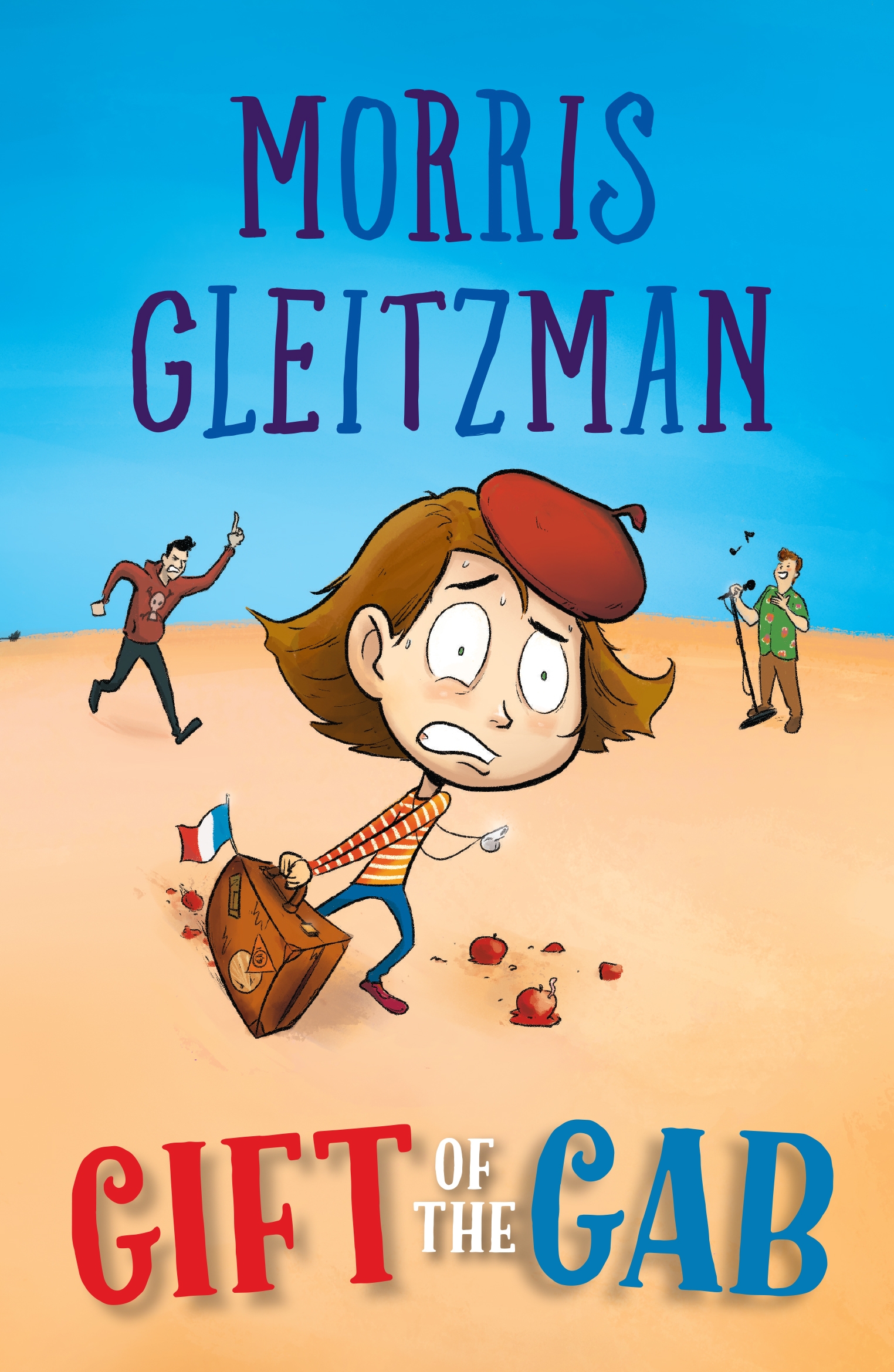
- Free Article: No
- Contents Category: Children's Fiction
- Review Article: Yes
- Article Title: Feisty Saga
- Online Only: No
- Custom Highlight Text:
With Gift of the Gab, Gleitzman continues the saga of Rowena Batts, the feisty twelve-year-old who previously appeared in Blabber Mouth (1992) and Sticky Beak (1993). Ro is the daughter of an apple farmer, a child with character, immense energy, and several problems: chiefly her inability to speak (she was born with 'some bits missing' from her throat) and her loving and much loved Dad. She copes with her vocal handicap through fluent sign language and a notebook at the ready, but Dad – an ardent country-andwestern enthusiast, given to cowboy boots, loud satin shirts and a penchant for off-key renderings of his favourite ballads at every opportunity – is harder to handle.
- Book 1 Title: Gift of the Gab
- Book 1 Biblio: Puffin, $11.95 pb, 128 pp
- Book 1 Cover Small (400 x 600):

- Book 1 Cover (800 x 1200):

Within this framework Gleitzman develops his plot, taking time along the way to have a lot of fun with country-and-western ballads (Dad's tear-jerking favourite is called 'I love you more than pickled onions') and rural social events. There are endless opportunities for sitcoms, starting on page one. Ro has an extremely low ignition point and a wild imagination, so when she finds what she thinks is dog poo on her mother's grave she assumed it was put there by the local teenager who has been making fun of her Dad's singing. Fortunately his unlocked car is nearby, and so is a trailer load of her father's rotting windfall apples ...
A continuing theme in all the series has been Ro's grief at the loss of her mother, who died when she was a baby. In this story she learns for the first time that Mum was actually the victim of a hit-and-run driver, and that the accident occurred in France, where the family had gone to visit the grave of Dad's grandfather, killed in the First World War. The driver has never been identified and Ro decides at once that she will go to France and track him down. Improbable? Not at all, for the way suddenly opens for her father to leave the country for a while to escape unwanted publicity. A TV program investigating the possible genetic effects of pesticide sprays by orchardists wants to focus on Ro and her handicap and Dad, overwhelmed by grief, guilt and confusion, needs time to sort things out.
So the two visit the French village where Mum died and Ro is astounded to find they are treated as heroes. Is it guilt, she thinks, for the unsolved accident? And who is the strange man who keeps turning up? By the time Ro discovers the dog poos on Mum's (fake) Australian grave were really French sausages and that the old water heater in the ditch is really an unexploded cannon shell from the First World War several other puzzles have been explained, including her Dad's secret reason for hiding the true facts about her mother's death and burial. And the play on words hidden within the book's title (one of Gleitzman's trademarks) becomes clear.
Kids love Gleitzman's yarns, and no wonder. His stories are always outrageously funny, anarchic, child-oriented. His young heroes engage in battle with bullies and insensitive adults, and usually come out on top. Furthermore, underlying the madcap adventures and ridiculous comedies, the breakneck action and slick repartee, are serious themes: adults like Ro's father who make mistakes through ignorance or stupidity, or others such as Angus' Mum in Bumface, so busy with their own careers they have no time for their kids. And wider issues: drought, lung cancer, AIDS, among others. Gleitzman is keenly aware that children today live in an adult world as never before, that the time of childhood innocence so fondly imagined by many older people ended when television arrived. Gleitzman's kids are real kids, full of fun and imagination and energy as kids always have been, but they live in the real world where people can be hurt and mistakes cannot always be corrected. Yet for Gleitzman and his readers it is still a world full of love and loving kindness, the reassurance that people are basically good and life is worth living. At a time when much of the current literature for young people seems to be life-denying and destructive, caught in a downward spiral of despair, I find Gleitzman a writer who offers hope along with humour, a salty irony that is never vicious and a sane, balanced reality that can poke fun at human idiocy and explain it at the same time.


Comments powered by CComment